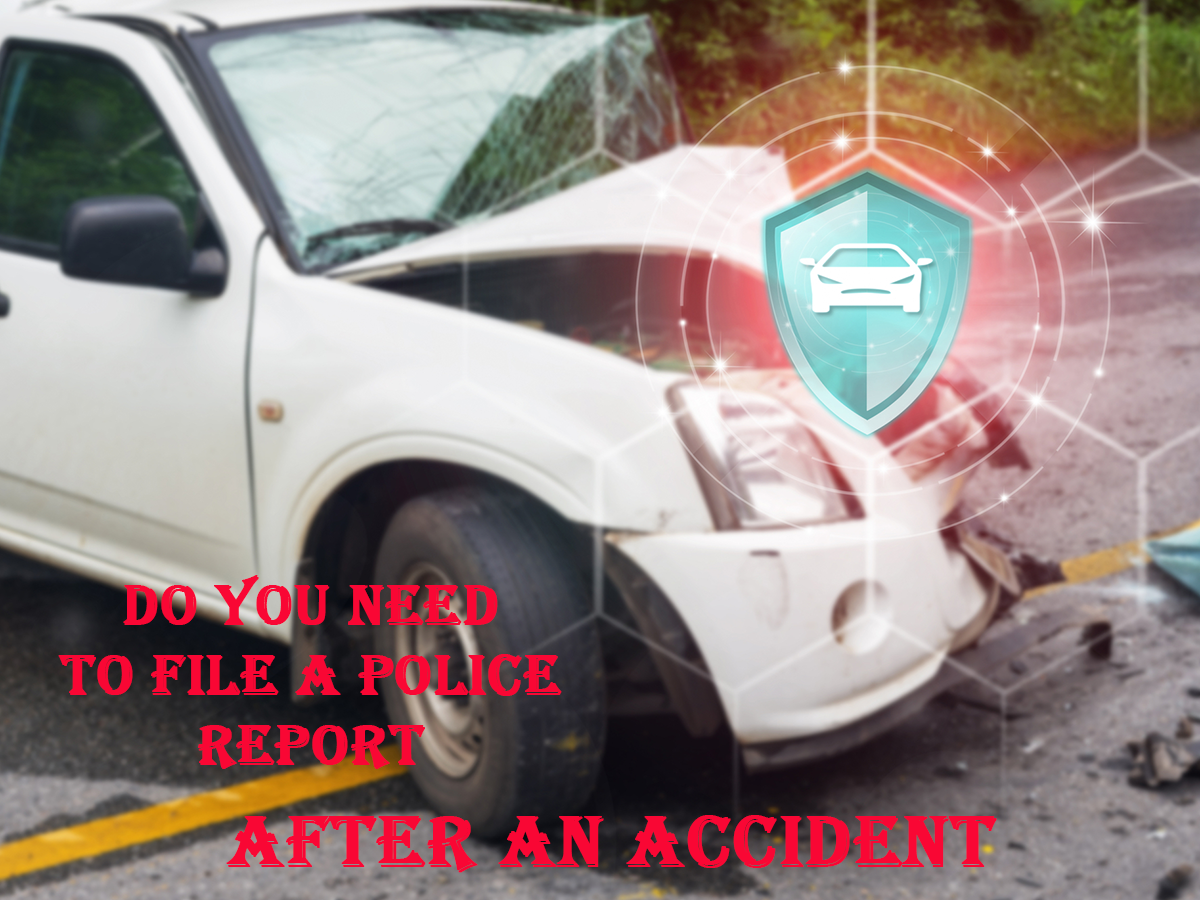Do you Need to File a Police Report after an Accident?

There is a statistical chance that as a driver you will get into an accident at some point in your life. Knowing the steps you should take after you get into a car crash is vital. There are numerous important steps that you should pursue, including assessing the situation and making sure 911 has been called. There may be assistance that is needed on the scene in terms of injuries and damage, and you will also want to inform the police officer that the accident occurred for insurance purposes.
It is essential to contact the police if you are involved in a car accident, and in some states, this is a requirement by law. Either way, it is better to notify the police and let them decide if they will come to the scene of the accident. After you have contacted the police, you will have taken the steps needed to follow the law. If a lawsuit is filed after an accident occurs, you can be better protected by going through the appropriate steps.
Injuries And Damage
When a person files a police report, the police will come and ask questions of both drivers, or all of the drivers involved, when they arrive at the scene of the accident. Utilizing the information that is available to them, they will fill out a report. They may ask people how they are feeling from a physical standpoint, whether or not there are any noticeable injuries to their body, as an example. Also, they will write down information about the damage to property in the area or people’s vehicles. Even though a police report is being filed, it is still essential to take pictures of the scene of the accident so that you have an accurate representation of the damages to both yourself and your vehicle. Many police departments do take photographs themselves when filing a police report, and some states have road planning staff that also comes out to assess what happened during an accident and figure out if the roadways can be improved using the information they gather over time.
Importance Of Police Reports
Regardless of whether the accident is a small one or a large one, filing an accident report can be largely beneficial. When an accident occurs, the physical damage to your vehicle is not always readily apparent. The same is true for medical damage to you, which can appear days or even weeks after an accident occurs. If you notice additional damage to your vehicle or physical effects to your body or mentality occurs, you will want to be able to file a claim or pursue another course of action.
It is also possible for someone to say or do something after you have left the scene of the accident, and having filed a police report will mean a higher likelihood of accuracy when dealing with the resolution. After you file a police report, you will also be able to utilize the police report when filing a claim.
How To File A Police Report
Filing a police report starts with calling the local authorities. When you call the police, they will decide whether or not to send an officer to the scene of the accident or incident. Keep in mind that filing a police report does not mean that you are submitting an insurance claim automatically. Filing an insurance claim is another step altogether. Due to this, you can file a police report and feel safe knowing that your insurance rates will not automatically be affected. You can still choose whether or not to file a claim regarding the crash at a later point in time.
In some cases, the parties involved in the accident decide to handle the financial aspects of the crash on their own. If you do need to file a claim, you will need to contact your car insurance provider for the details on how to move forward. You can also check to see whether or not filing a claim is likely to affect your car insurance premiums and get an estimate on how much your rates will change.
When the police officers arrive on the scene, they will assess the scene, talk to the involved drivers, and in many cases, take down people’s driver’s license and insurance information. Your police report will help protect you if the other driver decides to try and misrepresent something or if legal concerns arise as a result of the incident. Some states have laws require that you submit the police report to the Department of Motor Vehicles, the police can often help with this. Remember that people are not always at their best after an automobile accident. In many cases, they are shaken up and not able to truly assess how they are doing. Officers have experience in these situations and can be a great help.
A police officer will not always come to the scene of the crash, due to them being not available in your area, or for other reasons. If the property damage is too low, they might not be required by state law to come into the scene. If you have concerns regarding potential injuries or other issues, let the police know when you call the incident in. The more information they have, the better means they have to make a decision on whether or not to come out.
If there are no injuries, the police may decide not to come to the crash. Also, public emergencies or disasters in other places may prevent an officer from coming to the scene. Take the time to document damage, taking pictures if possible of your location, damage to property, damage to the vehicles, damage to yourself, and record the date and time of the incident.
State Laws
Each state has different laws regarding police reports. Some states require that the police report be filed if the damage is estimated to be $1,000 or more. Other states require documentation of all accidents when possible, and others do not have any requirements. Check with the Department of Motor Vehicles, or DMV, in your state to get the latest information on requirements where you are.








